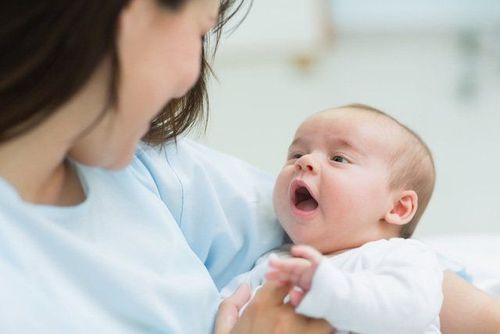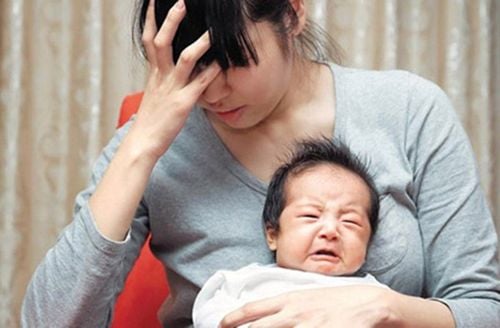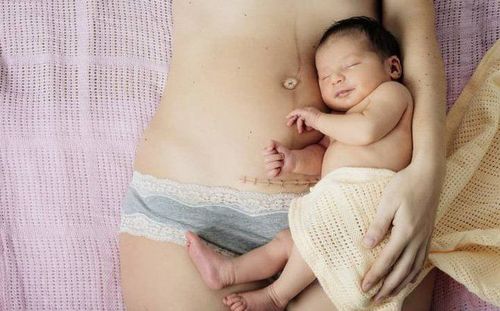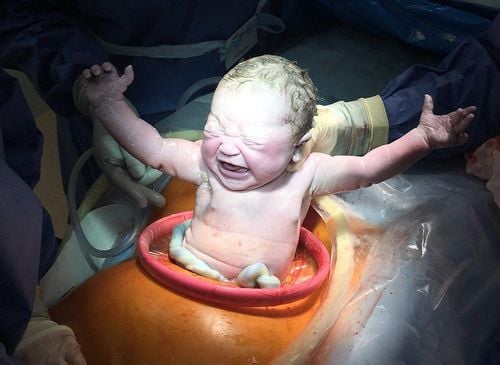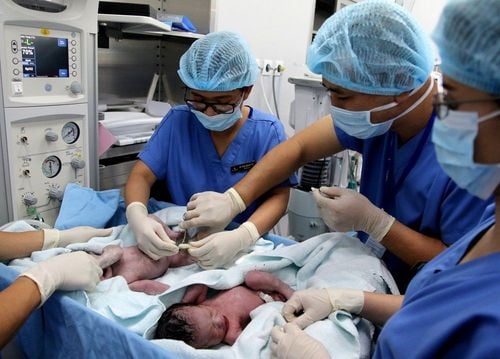This is an automatically translated article.
The article is professionally approved by Master, Doctor Le Nhat Nguyen- Department of Obstetrics and Gynecology - Vinmec International General Hospital Da NangA woman's body after giving birth will have to go through a lot of great changes and the next day it will have to adapt to the new mothering duties. The lack of knowledge about the effects of pregnancy and the postpartum recovery process makes mothers confused and do not know how to ensure their own health and have the best conditions to take care of their babies. little.
1. The first week after giving birth
The first week postpartum is the hardest period of postpartum adjustment and recovery. In addition to restoring the pelvis after birth or all organs in the body, at this time you have a lot of dual tasks such as giving birth, taking care of the newborn and possibly tearing the vagina, perineum ( and stitches) or other birth complications in your vagina and entire pelvis.
In addition, the postpartum process also has some characteristics such as: the private area will be uncomfortable, swollen and may be abrasive. Your breasts, nipples, and areola may be sore. If you had a cesarean section, you are also recovering from a cesarean section with major surgery. All your organs need to get back in place, your hormone levels are changing rapidly, and your body is preparing to breastfeed.
2. Show your role as a parent
You will probably spend the first one to two nights in the hospital before going home. Ask for advice and support when you need it. The scary feeling of coming home with the responsibilities of a newborn baby. Know that everyone feels a little overwhelmed and uncertain as they enter parenthood. However, even though you may have prepared a lot and read all the books for young children, it is normal to have a lot of questions and things don't always go according to plan.
Although babies have simple needs, caring for a child can be more difficult and confusing than expected. Scheduling sleep, breastfeeding, and diaper changes is harder than you think. Be flexible and patient with yourself and your child, and at the same time you need to trust your instincts, and try not to worry too much.
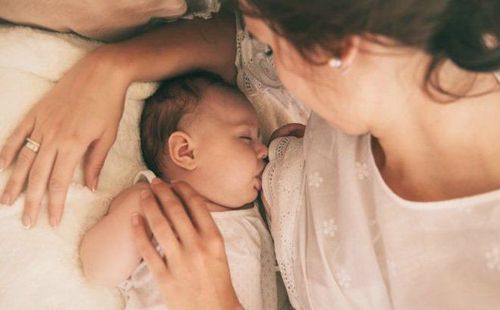
3. Breast changes
A few days after giving birth, your breasts will begin to fill with milk, which is bound to happen whether you plan to breastfeed or not. The initial milk production is based on the decline of the hormone progesterone after the placenta is created during pregnancy. For some women, just make a small amount. However, in other women with engorgement, it can become very uncomfortable. In this case, it is important to release an excess of milk in your breasts through massage, nursing or pumping. Pads inside the bra, are a little trick to help reduce engorgement.
4. Taking care of women after giving birth
Few people will tell you sooner that breastfeeding can be difficult, which can sometimes bring many new moms to tears. But if you ask around people who have breastfed, you'll discover that early breastfeeding difficulties are common. For some women, it is completely frustrating and/or painful. Fortunately, small adjustments with a better nursing pillow and a nipple ointment tube can make all the difference.
Nurses, doctors and lactation consultants can do wonders to help you get started with breastfeeding. Other breastfeeding moms can also be a great resource for you to share and learn from. Make sure you listen to your body and eating, drinking, sleeping and bathing will help you and your milk supply be stimulated to make more for your baby.
5. Bleeding after giving birth
For about the first week, you may experience heavy bleeding after giving birth, including passing large blood clots. This is the case whether you have a vaginal birth or a cesarean section. Your vaginal discharge (called discharge) is more than just blood; it also covers the mucous membrane that lines your uterus during pregnancy. You should wear pads for a few weeks after. However, you should not use tampons during this period because they can cause infection.
Although heavy vaginal bleeding is normal for the first few days postpartum, if the amount of discharge is more than one pad per hour or if you have acute pain, fever, or feel disoriented, you should contact your doctor. instant health care professional
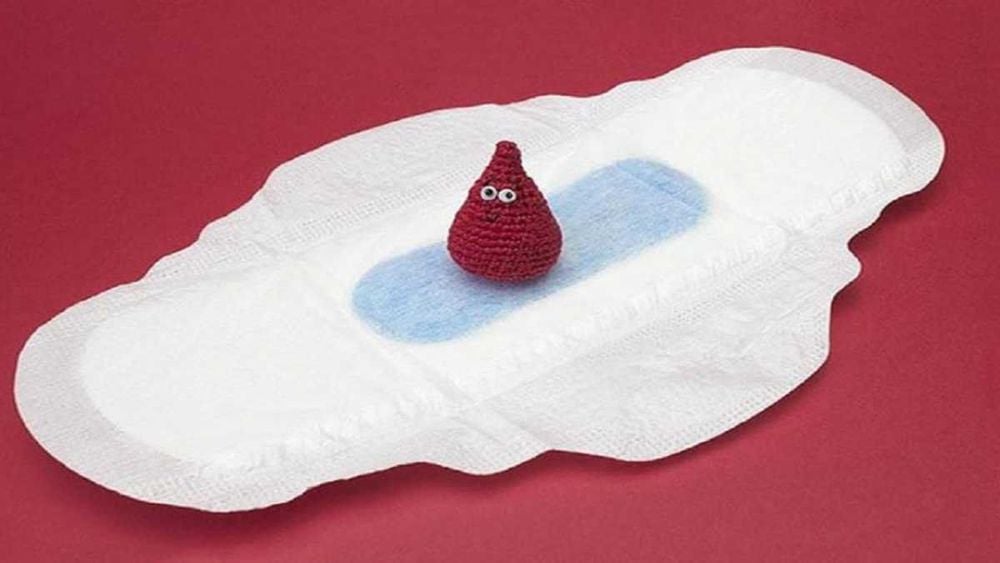
6. Uterine contractions
Postpartum pain can be very painful (and often gets worse with subsequent births). But they actually have a very good purpose. They help shrink your uterus back to its normal pre-pregnancy size. After giving birth, your uterus weighs about 1.13kg and up to 6 weeks after giving birth, it will drop to just 5.6g.
You will probably find that your postpartum pains are more intense while breastfeeding, which is because the release of oxytocin during breastfeeding enhances uterine contractions.
7. Factors that cause you to have abdominal pain after giving birth
7.1. Vaginal and Perineal Healing Whether you have a tear in your vagina, perineum, or an incision (from an episiotomy) or not, this area will feel tight, throbbing, and unsettled during the day. a time. You may also feel a sharp, stabbing pain if you have any skin cracks, as well as general aches and pains.
You can soothe your vaginal area by taking a warm bath, applying ice and witch hazel, sitting on a donut pillow, and squeezing warm water over the vaginal area and perineum after (or during) urinating. Hospitals often give new mothers a spray to gently rinse the vaginal area with warm water after going to the bathroom. Talk to your healthcare professional if your vaginal pain gets worse or if you develop a fever, as these could be signs of an infection.
7.2 C-section restoration Although common, don't forget that a c-section is a major abdominal surgery. It is important that you get as much rest as possible (apparently a big challenge when it comes to caring for a newborn) after c-section and that you follow your doctor's instructions regarding wound care. including staying away from the leg, keeping the incision clean, and not putting pressure on the incision.
After the epidural wears off, you will start to have pain in the incision. Oral medication can help, and ideally you should stick to your doctor's regular dosing schedule. The incision will not be terribly painful after the first few days but will remain tender for a while.
7.3. First bowel movement Many women dread having their first bowel movement after giving birth, but holding off on a bowel movement can make it worse, as you run the risk of exacerbating any hemorrhoids (a normal side effect of pregnancy). childbirth) and make the first bowel movement even more uncomfortable.
The truth is that nothing "falls out" when you first defecate; you will do just fine. Constipation is often a problem, as intermediate pains and the number of births on your body often lead to harder stools. If you're feeling uncomfortable, you might consider taking a stool softener for extra help.

8. Lose weight
It is perfectly normal for you to still get pregnant after giving birth. Remember that your uterus is still in the process of contracting back to its normal size, plus, your skin is stretched and you still have some extra discharge. After giving birth, you will likely lose about 4.5 to 6.8 kg, including the weight of your baby, amniotic fluid, and placenta. But as women tend to double or triple in a healthy pregnancy, you may still weigh more than you did before pregnancy, which is completely normal and nothing to worry about.
You will continue to lose excess fluid over the next few weeks, but losing the extra weight gained during pregnancy will be a slower process, because postpartum weight loss occurs. in the healthiest way possible. It will happen gradually and is based on healthy eating habits and exercise. Prolonged breastfeeding can help with weight loss.
9. Mood swings
The body undergoes rapid hormonal changes shortly after you give birth, which can make you feel nauseous, moody, elated and/or irritable. You're also adjusting to motherhood, breastfeeding, getting very little sleep, and possibly feeling overwhelmed. At this point, you should be open about how you feel with the people you love and trust, plus you should remember: stay hydrated, get enough nutrients and rest whenever possible.
Be compassionate and patient with yourself during your healing and (sometimes) mood swings or overload. Knowing that postpartum depression is common, it's important to pay attention to its symptoms, which include excessive worry about your baby, lack of interest in your baby, feeling overly sad, restlessness, and guilt. or useless and/or trouble sleeping, concentrating, remembering, or eating. Talk to your therapist if you feel unusual or have any concerns about your emotional state.
Periodic health check-ups help to detect diseases early, so that there are treatment plans for optimal results. Currently, Vinmec International General Hospital has general health checkup packages suitable for each age, gender and individual needs of customers with a reasonable price policy.
Results of the patient's examination will be returned to the home. After receiving the results of the general health examination, if you detect diseases that require intensive examination and treatment, you can use services from other specialties at the Hospital with quality treatment and services. outstanding customer service.
Please dial HOTLINE for more information or register for an appointment HERE. Download MyVinmec app to make appointments faster and to manage your bookings easily.
Reference source: parents.com; healthline.com; whattoexpect.com





